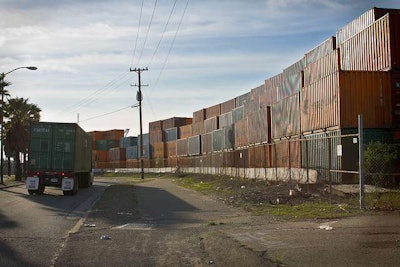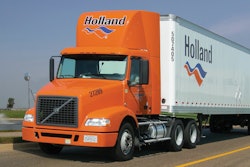
The U.S. Department of Transportation awarded a $15 million TIGER grant to the Outer Harbor Intermodal Terminal Rail Access project of the Port of Oakland. These funds, along with additional local and state funding, will improve rail access to and from the port and expand its rail capacity, leading to faster and cleaner goods movement, while also providing rail access for the proposed Oakland Army Base development.
“We need support from every level of government if we are going to make this project a reality,” says Omar Benjamin, port executive director. “The state is heavily invested in the OHIT along with the local public and private sectors because this project will deliver future benefits locally, regionally and nationally. Additionally, these funds will help create good-paying construction jobs.”
The port says the project will make it more competitive and cleaner in line with its strategic plan; enhanced rail capacity means the Oakland seaport can accommodate more goods by rail rather than by truck, resulting in less truck traffic, congestion and emissions, while lowering costs for trade-dependent businesses, especially the port’s agricultural export partners.
The $15 million is the second Transportation Investment Generating Economic Recovery grant secured by the port. The federal funding will be matched more than one-to-one to launch the first phase of the OHIT Rail Access project, which is part of the joint City-Port OAB redevelopment plan.
The Port of Oakland project is one of 47 transportation projects in 34 states and the District of Columbia that will receive a total of almost $500 million from DOT’s TIGER 2012 program.
“President Obama’s support for an America built to last is putting people back to work across the country building roads, bridges and other projects that will mean better, safer transportation for generations to come,” said U.S. Transportation Secretary Ray LaHood. “TIGER projects mean good transportation jobs today and a stronger economic future for the nation.”










